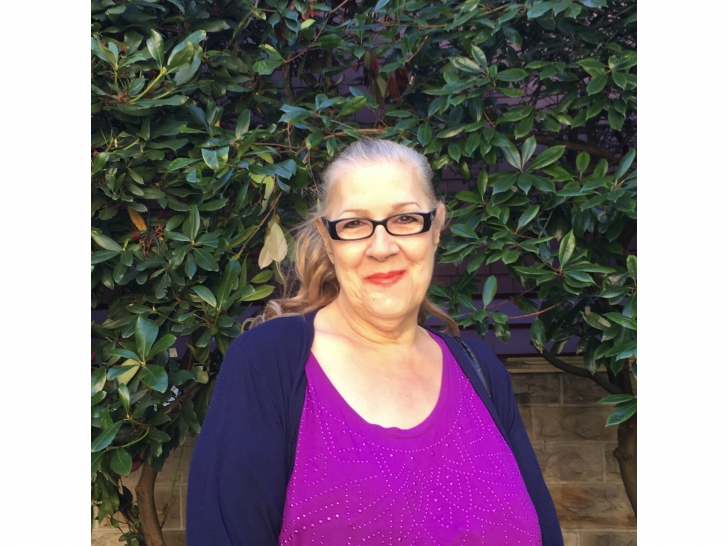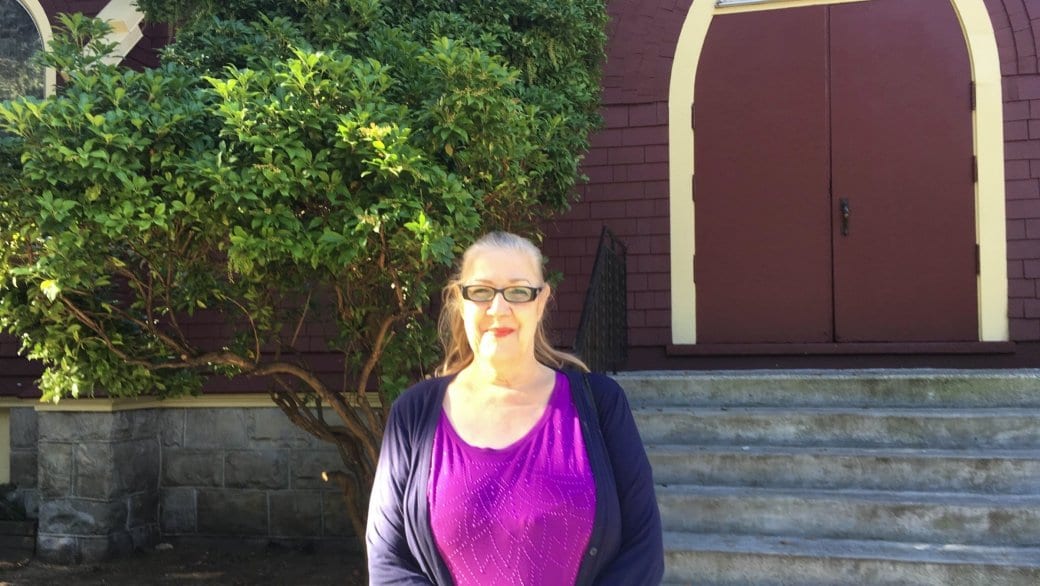After years in the making, a sex worker memorial in Vancouver’s West End will finally be unveiled this Friday.
The monument will honour the sex workers who once were part of a flourishing community before being expelled from the area and pushed aside to Yaletown and parts further east, after a July 1984 Supreme Court injunction by Justice Allan McEachern.
“Anytime when something happens in society where a grave injustice occurs, there has to be an acknowledgement of that and a rectifying of that,” says Jamie Lee Hamilton, an indigenous trans sex workers advocate, who co-founded the West End Sex Workers Memorial Committee in 2008.
Hamilton was one of the sex workers expelled and fined under the City of Vancouver’s 1982 Street Activities bylaw, the result of lobbying by Concerned Residents of the West End led by former city councillor Gordon Price and Vancouver Centre MP Pat Carney.
For Hamilton, the memorial — considered the first of its kind in Canada — will be a powerful tribute.
“It, to me, is like a homecoming,” she says. “It’s a powerful symbol of our community and the place that we had there — and for those no longer with us, it brings some justice as well.”
During the 1970s and ’80s, the West End was home to a tightly knit, diverse community of sex workers, she says, who kept the area pimp-free.
“So many of the people down there are now gone because so many people were pushed out into dangerous, dark areas and often met violence. So it’s very poignant as well. It symbolizes to me that never again can the city ever sweep the sex trade under the carpet as they did for decades.”
The City of Vancouver has put $28,000 into funding the monument — the same amount it raised in fines against sex workers and consumers during enforcement of its 1982 bylaw, a spokesperson for the city confirms.
Hamilton says city staff has also invested time into planning for the monument, and city representatives will be speaking at its unveiling alongside sex workers and community leaders on Sept 16, 2016.
“I’m proud of the engineering department at the city and social planning staff, who were very amazing, and believed in the memorial,” she says.
She’s disappointed, though, that the mayor won’t be at the unveiling.
A spokesperson for Mayor Gregor Robertson’s office says a scheduling conflict will prevent his attendance, but says the city will be represented by staff and possibly by city councillors.

The memorial’s location, at Jervis and Pendrell Streets, marks a convergence of the old sex worker strolls. It also is in front of St Paul’s Anglican Church, which often offered refuge, Hamilton says.
“They allowed sex workers to take sanctuary when there was all this conflict happening and they were very, very supportive,” she says. “They were a group who did not try to push sex workers around.”
Becki Ross, a UBC sociology professor and co-founder of the West End Sex Workers Memorial Committee, credits “dogged determination” and the “intimate allyship” of her 20-year friendship with Hamilton, as driving forces behind the monument’s realization.
“It really is a testament to the depth and passion of our friendship and our collaboration and our shared vision in terms of sovereignty for sex workers and sex workers’ rights,” she says.
Ross says members of the committee decided that instead of asking for individual reparations, they would push the city to fund a monument to recognize the injustice of the expulsion of sex workers.
“[There was] a consensus that the West End needed to be whitened and cleansed of the so- called public dangerous nuisance of street prostitution on the cusp of Expo 1986,” Ross recalls.
In addition to enforcing fines, she says, the city spent money to re-fashion the West End with traffic diversions and roundabouts to deter johns.
A City of Vancouver spokesperson confirms that $28,000 was spent on traffic diversions as part of the West End Traffic Plan to curb street activities in the 1980s, though says the diversions also aimed to address developing traffic issues associated with the area’s densification.
“It was a very single-minded juggernaut that left a trail of disruption in its path that continues to reverberate to this day,” Ross maintains.
“All those relationships and all those practices were completely shattered, and that made everyone vulnerable,” she says. “What we know is from that moment on, we then see the lethal consequences of that violent purge.”
Despite the formation of the Alliance for the Safety of Prostitutes in 1981, she notes, few allegiances formed between sex workers, feminist or labour leaders, or gay men.
“Where there should have been a logical allyship, and very robust solidarity and coalition making, there was none.”
The new monument will offer a visible tribute to a group of people who played a formative role in the emergence of Vancouver’s gay neighbourhood, but who rarely receive recognition, she says.
Ross says advocating for the rights of sex workers is as vital as ever, particularly with new prostitution laws under Bill C-36, which she says has led to the re-criminalization of sex work.
“In the last two years, trans sex workers of colour in Canada and the US have been among the most vulnerable to absolutely heinous violence. . . just grotesque murders by men,” she says. “It’s a very at-risk community so that’s part of what we’re trying to do is raise awareness in terms of sex workers’ voices and sex workers’ contributions to the history of the West End.”
Significant steps have recently been taken by city staff and police, she says, to improve relationships with sex workers based on trust and respect, including the city’s sex work response guidelines in 2015.
“That’s still in the works, early days, but at least there’s some promise that there’s a new horizon, in spite of the re-criminalization by Bill C-36,” Ross says.
Hamilton doesn’t want to reveal details of the memorial, but offers a few hints.
“It’s Victorian in look and it lights up and it has very powerful words,” she says.
Ross is keeping mum on the details as well, but describes it as a majestic, statuesque monument that will do justice to the beauty and moxy of sex workers.
West End Sex Workers Memorial Unveiling
Friday, Sept 16, 11am
Corner Jervis and Pendrell Streets in Vancouver
facebook.com/events/1753850521553771/

 Why you can trust Xtra
Why you can trust Xtra


